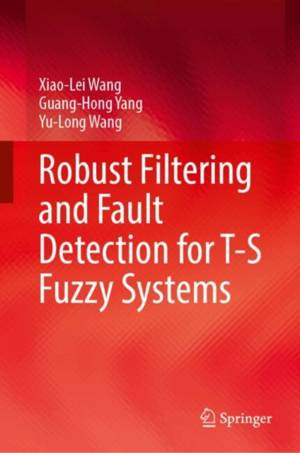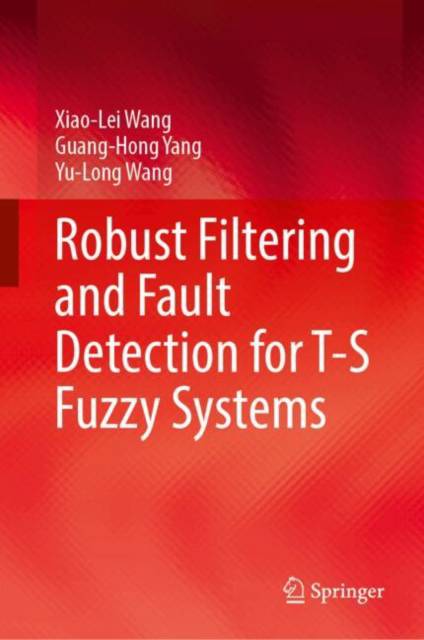
- Afhalen na 1 uur in een winkel met voorraad
- Gratis thuislevering in België vanaf € 30
- Ruim aanbod met 7 miljoen producten
- Afhalen na 1 uur in een winkel met voorraad
- Gratis thuislevering in België vanaf € 30
- Ruim aanbod met 7 miljoen producten
Zoeken
Robust Filtering and Fault Detection for T-S Fuzzy Systems
Xiao-Lei Wang, Guang-Hong Yang, Yu-Long Wang
Hardcover | Engels
€ 213,95
+ 427 punten
Omschrijving
This book conducts an in-depth research on robust filtering and fault detection for a class of T-S fuzzy systems. On the basis of the existing research on T-S fuzzy theory, robust filtering theory, and fault diagnosis theory, some new and effective technologies are proposed to solve the problems of robust filtering and fault detection for a class T-S fuzzy systems, while overcoming the shortcomings and limitations of the existing solutions. This book introduces new design solutions for a class of T-S fuzzy systems to address the existing problems in the research of robust filtering and fault detection, namely 1) two new filtering methods are explored to obtain better filtering results than the existing approaches; 2) a new event-triggered filtering scheme is proposed for T-S fuzzy systems with bounded disturbances, which realizes that the designed observer gains in the absence of event-triggered mechanisms are also applicable to the case with event-triggered mechanisms; 3) two new methods are constructed to deal with the asynchronous problems of premise variables effectively, which overcome the defects and limitations of the existing ones; and 4) an effective fault detection scheme for handling measurement outliers is constructed, which can avoid the occurrence of false alarms. This book is intended to inspire researchers and engineers, offering deeper insights into robust filtering and fault detection for T-S fuzzy systems, and equipping them with the latest advancements in fuzzy system theory, robust filtering, and fault diagnosis. It also provides valuable theoretical references for engineers tackling practical engineering problems.
Specificaties
Betrokkenen
- Auteur(s):
- Uitgeverij:
Inhoud
- Aantal bladzijden:
- 148
- Taal:
- Engels
Eigenschappen
- Productcode (EAN):
- 9789819658176
- Verschijningsdatum:
- 1/06/2025
- Uitvoering:
- Hardcover
- Formaat:
- Genaaid
- Afmetingen:
- 164 mm x 238 mm
- Gewicht:
- 426 g

Alleen bij Standaard Boekhandel
+ 427 punten op je klantenkaart van Standaard Boekhandel
Beoordelingen
We publiceren alleen reviews die voldoen aan de voorwaarden voor reviews. Bekijk onze voorwaarden voor reviews.








